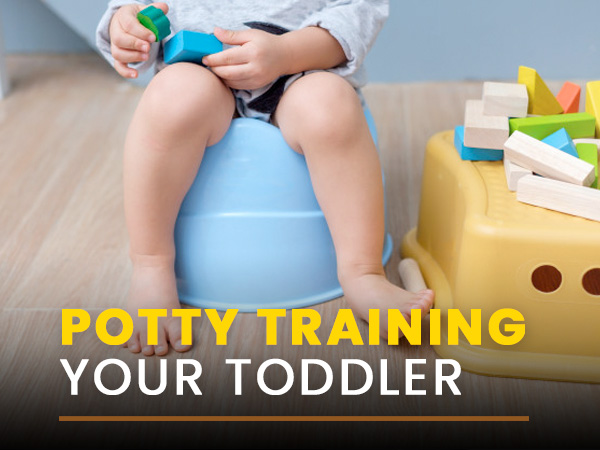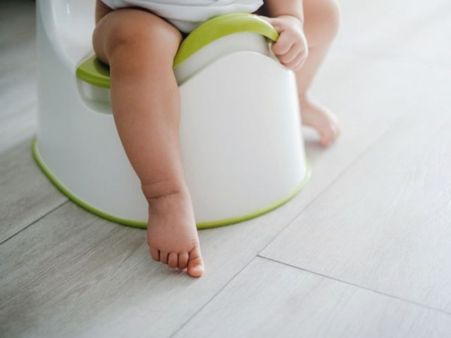Just In
- 12 min ago

- 1 hr ago

- 1 hr ago

- 4 hrs ago

Don't Miss
- Movies
 Anchakkallakokkan Full Movie Leaked Online In HD For Free Download Within Hours Of Its OTT Release
Anchakkallakokkan Full Movie Leaked Online In HD For Free Download Within Hours Of Its OTT Release - Technology
 Motorola Edge 50 Pro Goes on Sale in India at 03:00 pm Today via Flipkart: Check Price, Specs, Offers
Motorola Edge 50 Pro Goes on Sale in India at 03:00 pm Today via Flipkart: Check Price, Specs, Offers - Finance
 FII-Backed Penny Stock Issues New Update On Warrants, Shares Gain 111% In 3-Yrs
FII-Backed Penny Stock Issues New Update On Warrants, Shares Gain 111% In 3-Yrs - News
 Karnataka Weather Alert: Light Rains Likely In Bengaluru In Next 24 Hours, Check Latest Forecast
Karnataka Weather Alert: Light Rains Likely In Bengaluru In Next 24 Hours, Check Latest Forecast - Travel
 Journey From Delhi To Ooty: Top Transport Options And Attractions
Journey From Delhi To Ooty: Top Transport Options And Attractions - Education
 IIIT-Bangalore Introduces PG Diploma In Digital Product Design And Management
IIIT-Bangalore Introduces PG Diploma In Digital Product Design And Management - Automobiles
 Jawa Yezdi Expands Mega Service Camps To 32 New Cities, Focusing On Tier-II And Tier-III Regions
Jawa Yezdi Expands Mega Service Camps To 32 New Cities, Focusing On Tier-II And Tier-III Regions - Sports
 Hardik Pandya bystander as Akash Madhwal takes input from Rohit Sharma before bowling final over vs Punjab
Hardik Pandya bystander as Akash Madhwal takes input from Rohit Sharma before bowling final over vs Punjab
Tips For Potty Training: Boys vs Girls, Potty-Training Age And How To Potty Train
The shift from diapers to underwear is indeed a big transition for your toddler. Majority of parents are concerned about potty training their children at the toddler age itself but many waits until their children reaches readiness to take an initiative.
Doctors say that there are some good reasons to potty train your child at an early age. It is difficult to specify a particular age to start potty training, however, it is better to be as early as possible once your toddler reaches an attitude of initiating and leading potty training.

The basic requirement to be potty trained is that your baby must be able to sit on their own. The other signs include the baby showing discomfort in going potty in the diapers and showing interest in what you do in the bathroom.
Given below are some tips that might come in handy when you try to potty train your child.

How To Potty Train Your Child?
Before you begin potty training your child, keep the following points in mind:
(1) Look out for signs: As there is no ‘exact' age for potty training, you must look for signs that your child is ready. The signs include realising/recognising when their diaper is soiled, physically being able to pull their pants up and down, expressing an interest in going to the toilet etc. [1].
(2) Show them how it's done: Allow your child to follow you or a friend through the process of using the bathroom. You can also try the same (if you have) with the older child, as children tend to learn better from observing a child close to their age [2].
(3) Potty training supplies: Keep potty training supplies such as a step stool, kiddie hand soap, toilet seats, big kid underwear, wet wipes, training pants, faucet extender etc. at home.
(4) Patience: Potty training takes time. Seat your child on the potty seat for a minute or so in the beginning. Let him get comfortable with the potty. The child will slowly get the hang of it and start doing his business in it. Repetition and patience are the keys [3].

(5) Motivation: When your kid uses the potty, applaud, and show your appreciation. Such as hugging them and telling them that they did a good job. You may also choose other forms of encouragement like stickers and stars to stick on a board for each time that your child uses the potty. All these methods will make them eager to use the potty.
(6) Morning training sessions: Pick your baby up and place them on the potty seat first thing in the morning as soon as they wake up. Kids tend to poop and pee as soon as they wake up in the morning. The same is true after they wake up from their naps [4].
(7) No scolding: Potty training is something that your baby has to learn. Bladder control does not come easy to them. You must expect some days when the child will relapse and have an accident. Do not scold them for it as it will just stress them out and can lead to more potty accidents. Be supportive and loving and tell them that it is ok, and you know that the next day will be better [5][6].
(8) Washroom use: Once you stop using the diapers, you must make sure that your child uses the washroom just before going out. This will give you peace of mind and make sure that accidents do not happen when you are out. But as a precaution, carry wipes and a change of clothes every time you step out with your child [7].


Importance Of Potty Training Your Child
Psychological awareness: Doctors say that potty training your toddler at a ‘right' age will help them know how to respond to their physiological needs. This will in turn help them know their body and biological rhythm [8].
Hygiene education: Early potty training will be the best idea to teach your toddler about the importance of hygiene. You can simply associate the importance of handwashing also along with the potty-training session.
Diaper free nights: Delayed potty training will force the child to use diapers at least in the night even when they are three or four years of age. Early potty training is the best solution for this as this will help them to avoid using diapers [9].
Healthy bowel movements: Insisting good toilet habits at an early age is good for the health of your toddler. More importantly, they will be aware of the bowel signals, when compared to the ‘diaper going' which do not need much awareness [10].
Easy and effective: Potty training at an older age may require more time and effort, while it will be an easy process with a toddler at the correct age for potty training. Forcing the child will lead to behavioural problems and resistance from the child's side.
Develops self-control: Using diaper may make the matter easier. But it is not good as they do not have to think of controlling their feeling. Early potty training will help them to practice self-control. If you know how to potty train your toddler, it will be an easy process [11].
Improves sense of independence: A properly potty-trained toddler will be confident enough to handle his toilet need alone. This will induce a sense of independence because they can feel the difference in leaving you free [12].

What’s The Average Age For Potty Training Boys And Girls?
Most parents start working on their child's potty-training skills between 18 months and 3 years of age. The average age of potty training falls somewhere around 27 months. Children younger than a year up to 18 months old do not have control over their bladder and bowels, so training before this time may not yield the best results.
Children with special needs tend to begin potty training later than other children and the process is typically complete sometime after they reach 5 years of age, however, the timeline varies between kids [13].

On A Final Note…
Remember not to force the toddler into potty training as it may develop a negative association in the child's mind. Each child has his or her pattern and time that he or she follows. Do not worry if your baby is taking too long to be potty trained. It will happen at some point, if not, consult your paediatrician.
-
 healthSolar Eclipse 2024: Dos and Don'ts for Pregnant Women During Surya Grahan
healthSolar Eclipse 2024: Dos and Don'ts for Pregnant Women During Surya Grahan -
 healthLunar Eclipse 2024: Dos And Don'ts For Pregnant Woman During Chandra Grahan
healthLunar Eclipse 2024: Dos And Don'ts For Pregnant Woman During Chandra Grahan -
 fashionDeepika Padukone-Ranveer Singh Announce Pregnancy: 6 Maternity Outfit Ideas For The Modern Mom-to-Be
fashionDeepika Padukone-Ranveer Singh Announce Pregnancy: 6 Maternity Outfit Ideas For The Modern Mom-to-Be -
 healthLate Singer Sidhu Moose Wala's Mother Is Pregnant Through IVF, Know What It Is And How To Prepare For It
healthLate Singer Sidhu Moose Wala's Mother Is Pregnant Through IVF, Know What It Is And How To Prepare For It -
 insyncVirat Kohli And Anushka Sharma Name Their Baby Boy 'Akaay', Know What This Beautiful Name Means?
insyncVirat Kohli And Anushka Sharma Name Their Baby Boy 'Akaay', Know What This Beautiful Name Means? -
 pregnancy parentingMaternal Health Awareness Day 2024: 15 Foods That Boost Maternal Health
pregnancy parentingMaternal Health Awareness Day 2024: 15 Foods That Boost Maternal Health -
 pregnancy parentingFrom Contractions To Water Breaking: Knowing When It's Time For The Hospital During Pregnancy
pregnancy parentingFrom Contractions To Water Breaking: Knowing When It's Time For The Hospital During Pregnancy -
 pregnancy parentingBirth Control Pills Can Affect This Primary Function In Women: Find Out What
pregnancy parentingBirth Control Pills Can Affect This Primary Function In Women: Find Out What -
 pregnancy parentingTwo Wombs, Four Hearts: US Mom's Extraordinary Double Uterus Pregnancy
pregnancy parentingTwo Wombs, Four Hearts: US Mom's Extraordinary Double Uterus Pregnancy -
 healthExclusive: A Pregnant Mom Can Posses These Maternal, Fetal Health Risks If Exposed To Air Pollution
healthExclusive: A Pregnant Mom Can Posses These Maternal, Fetal Health Risks If Exposed To Air Pollution -
 pregnancy parentingDelhi Air Pollution: Pregnant Women Must Follow These 4 Things!
pregnancy parentingDelhi Air Pollution: Pregnant Women Must Follow These 4 Things! -
 pregnancy parentingDelhi Air Quality Crisis: How Air Pollution Can Affect Unborn And Newborn Babies? Precaution Tips For Pregnant
pregnancy parentingDelhi Air Quality Crisis: How Air Pollution Can Affect Unborn And Newborn Babies? Precaution Tips For Pregnant


 Click it and Unblock the Notifications
Click it and Unblock the Notifications




